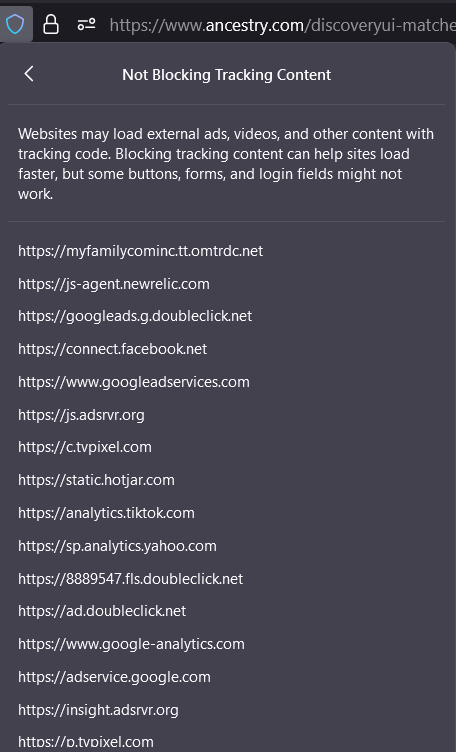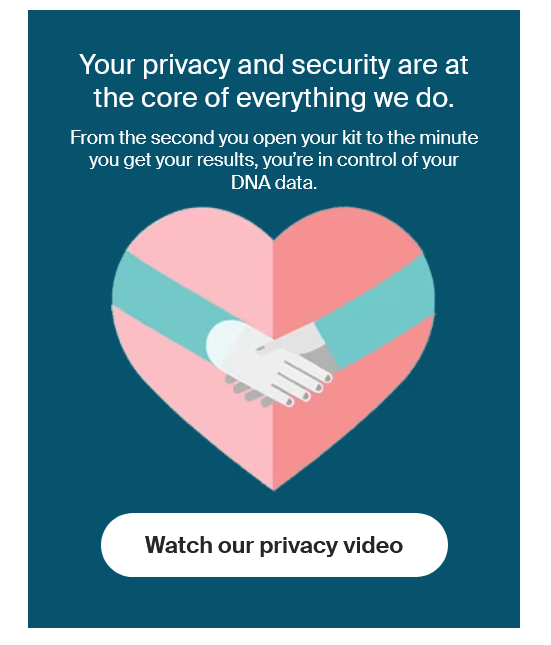Summary (TL;DR): TikTok’s extensive data collection raises privacy concerns, especially as its ownership means data can flow to China. The recent discovery of TikTok trackers on websites like Ancestry.com, even without directly using TikTok, highlights a lack of transparency. Users are unknowingly tracked as they browse, with this data used to build unique digital fingerprints. Banning TikTok is not the answer, as the problem extends beyond a single app. Instead, the US needs stronger federal privacy laws to address how companies collect and use our data, providing transparency and protecting user rights in the evolving digital landscape.
TikTok, a popular social media app, has been in the news recently due to concerns about its data collection practices and the potential risks to user privacy. Like many companies in the digital age, TikTok collects vast amounts of data on its users, including their online activity, interests, and personally identifiable information. This data is often shared with third-party companies for advertising purposes. Due to the global nature of the internet, it is a valid concern about how the data crosses borders and how it is being used. In TikTok’s case, the concern is how much of this data is being passed to China.
Banning TikTok is not a viable solution to this problem.
TikTok Tracks People Outside of TikTok.com
Recently, I discovered something concerning while browsing my DNA matches on Ancestry.com. I found a tracker for analytics.tiktok.com, along with many others, in the website code. This discovery raised questions about what data was being collected and how it was being used. What is TikTok doing with information gained from DNA matches?

In my case, I was not aware that TikTok, and the other companies, were tracking my activity on Ancestry.com. I thought, when I viewed my DNA matches, I was doing so privately. Ancestry claims privacy is important.

This lack of transparency is concerning because it means that I did not have the opportunity to make an informed decision about whether I wanted my data to be collected and used in this way. By viewing the DNA results that were paid for, and using their site via the subscription that is paid for, I opened myself up to be stalked on the internet.
Transparency in data collection practices is critical for several reasons.
- It allows users to make informed decisions about how their data is used. When companies are transparent about their data collection practices, users can decide whether they want to share their data and can take steps to protect their privacy if they choose.
- Transparency helps to build trust between companies and their users. When companies are open and honest about how they collect and use data, it shows that they respect their users’ privacy and are committed to protecting their personal information.
It’s essential to remember that, currently, companies are not required to tell us how they’re using our data. TikTok is just one of many companies that track users online. The problem is, users are unaware companies are adding TikTok’s tracking code to their websites, and users are unaware they are being tracked by TikTok. Banning TikTok would not prevent other companies from adding TikTok’s code to their website.
TikTok Can, Potentially, Identify You
Have you ever noticed that when you visit different websites, you seem to be shown the same ads? Or that you’re often greeted with the same pop-ups? This is because websites are using a technique called browser fingerprinting to track you across the internet. This information can be used to create a digital fingerprint of you. The browser you’re using can reveal quite a lot about you: the extensions you have, your screen resolution, the operating system you’re on. When this information is combined, it can create a unique fingerprint that can be used to track users across different websites.
Browser fingerprinting is a growing threat to online privacy. It can be used to track your browsing habits, target you with ads, and even identify you online. Browser fingerprinting is a complex issue, and there is no one-size-fits-all solution to protecting yourself from it. It is impossible to change all the data metrics companies are using to track you, so it is impossible to completely protect yourself from browser fingerprinting.
The United States Needs Stronger Federal Privacy Laws
Instead of banning TikTok, a more effective solution would be to implement stronger federal privacy laws and regulations that protect people’s privacy online. One of the main reasons why new privacy laws are needed is because of the rapid pace of technological change. As technology continues to evolve, new ways of collecting and using personal information are being developed. This means that existing privacy laws may not be sufficient to protect people’s privacy in the face of these new developments.
Another reason why new privacy laws are needed is because of the global nature of the internet. Personal information can easily be transferred across borders, which means that it is important for there to be international standards for privacy protection. Without such standards, it can be difficult for individuals to know what their rights are when it comes to their personal information.
There is a growing awareness among the public about the importance of privacy. People are becoming more concerned about how their personal information is being used and who has access to it. This has led to calls for greater transparency and accountability from companies and governments when it comes to how they handle personal information.
In conclusion, banning TikTok is not going to solve the problem of them gathering information about people in the United States. There is a clear need for new federal privacy laws to protect people’s privacy in today’s digital age. These federal laws must take into account the rapid pace of technological change and the global nature of the internet. They must also reflect the growing public awareness about the importance of privacy and provide greater transparency and accountability when it comes to how personal information is handled.






